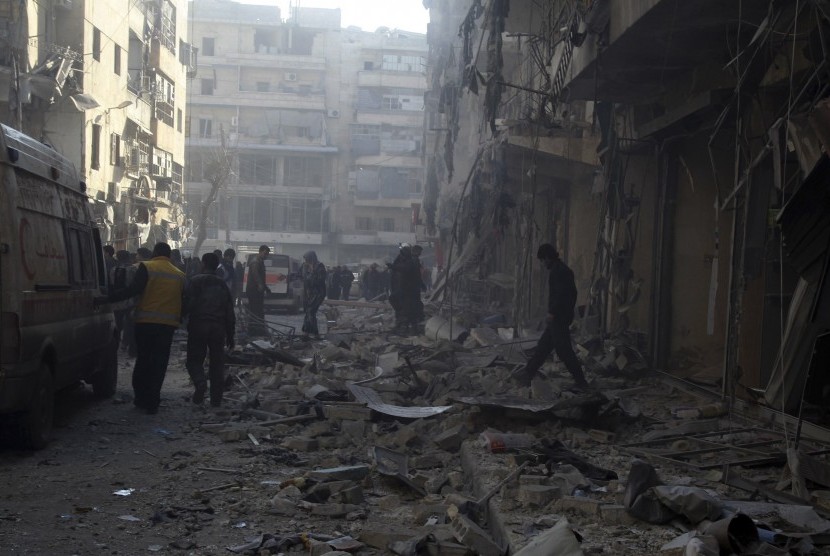REPUBLIKA.CO.ID, ISTANBUL -- Syria's deeply divided opposition finally agreed Saturday to join an international peace conference, saying it wanted to remove President Bashar al-Assad from power, a day after Damascus offered concessions.
The deeply divided National Coalition had been under intense international pressure to attend the conference, which aims to find a way out of the brutal conflict that has killed 130,000 people and made millions homeless since March 2011.
Damascus had already said it will attend, although US Secretary of State John Kerry has accused the regime of diversionary tactics, saying "nobody is going to be fooled".
The exiled Coalition voted by 58 votes to 14 with two abstentions and one blank vote at a meeting in Istanbul to attend the so-called Geneva II talks, which open Wednesday.
That meant just 75 of the around 120 opposition delegates took part in the secret ballot, in a sign that strong disagreements persist.
Leader Ahmad Jarba said the umbrella group would be there with the sole aim of removing Assad from power.
"The Geneva II negotiation table is a one-way road aimed at achieving all the demands of the revolution... and first and foremost stripping the butcher (Assad) of all his powers," he said.
Western powers welcomed the opposition decision, which Kerry said was "in the interests of all the Syrian people who have suffered so horribly under the brutality of the (Bashar-al-) Assad regime".
British Foreign Secretary William Hague praised the opposition for reaching what he called a "difficult decision".
German Foreign Minister Frank-Walter Steinmeier said the decision provided a "small glimmer of hope" for Syria's people and his French counterpart Laurent Fabius called it a "courageous choice".
More than 35 countries will gather in the Swiss cities of Montreux and Geneva from Wednesday for talks on setting up a transitional government to lead the country, in line with a 2012 deal.
The Coalition, a grouping of myriad organisations, has long struggled to put forward a united front during the civil war, rocked by infighting over its leadership and efforts to form a government in exile.
Many members had been appalled at the idea of sitting down at the same table with representatives of the hated regime they have been trying to unseat for almost three years.
In a surprise move in Moscow on Friday, Syria's Foreign Minister Walid Muallem presented his Russian counterpart Sergei Lavrov with a security plan aimed at halting "all military actions" in the devastated northern city of Aleppo.
Muallem also said the regime was willing to swap prisoners with the rebels in the first such mass exchange since the conflict erupted, while Lavrov said Damascus was ready to take "a series of humanitarian steps" to improve the delivery of aid.
And on Saturday, food aid entered the besieged Yarmuk Palestinian refugee camp in Damascus -- where dozens of people are reported to have died of hunger and lack of medical care -- for the first time in four months.
Syria, Muallem said, would "make every effort to ensure Geneva II is a success and meets the aspirations of the Syrian people and the direct orders of President Bashar al-Assad".
But Kerry warned the regime it could not divert the peace talks away from the aim of installing a new government, after a letter from Muallem to the UN said Geneva was about getting rid of extremists in Syria.


